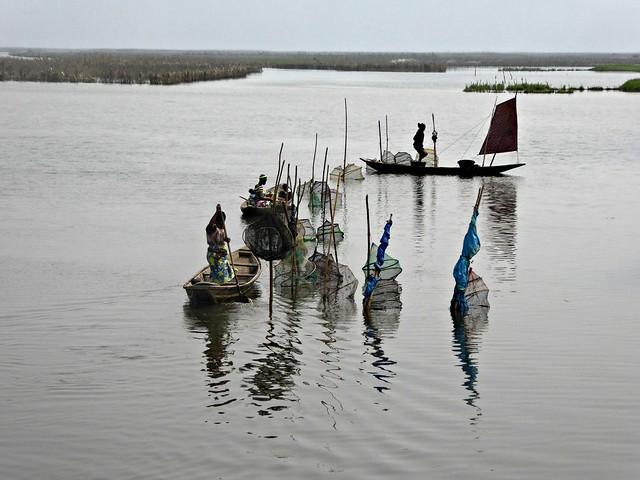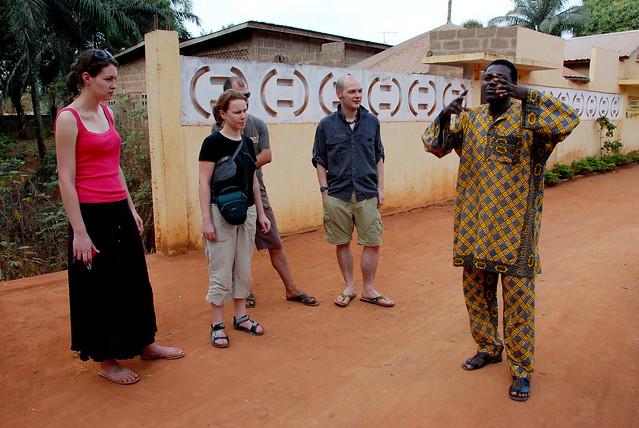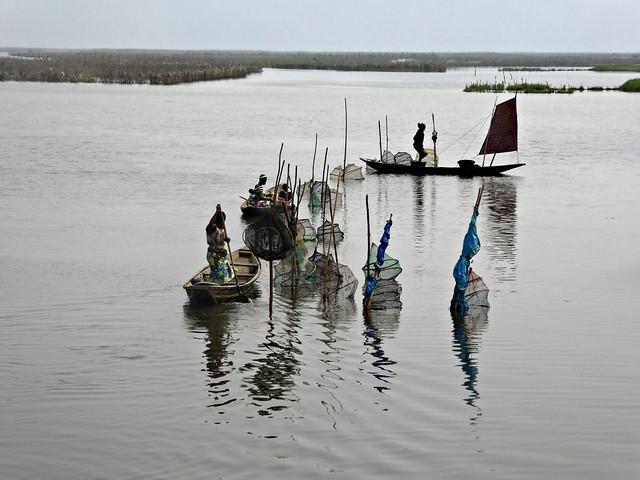



Abomey
Overview
Historical Significance
Abomey, the capital of the Zou Department in Benin, is a city steeped in rich history and cultural significance. Once the heart of the powerful Dahomey Kingdom, which thrived from the 17th to the late 19th centuries, Abomey served as the royal seat for a succession of kings. The remnants of this glorious past can be explored through the city's impressive palaces, particularly the Royal Palaces of Abomey. This UNESCO World Heritage site consists of a series of mud-brick buildings adorned with intricate bas-reliefs, depicting the history and mythology of the kingdom. Visitors can wander through these historic structures, gaining insight into the ceremonial practices, governance, and daily life of the Dahomey royalty.
Cultural Richness
The culture of Abomey is vibrant and deeply rooted in tradition. The city hosts numerous cultural festivals, with the most notable being the Festival of the Vodun, celebrating the rich spiritual heritage of Benin. Visitors can witness mesmerizing performances featuring traditional music, dance, and rituals that honor the Vodun deities. The artistic expression is also evident in the local craftsmanship; colorful textiles, intricate beadwork, and hand-carved wooden artifacts are popular among artisans. Travelers can explore local markets, such as the Grand Marché d'Abomey, bustling with vendors selling everything from fresh produce to traditional crafts, providing an authentic taste of daily life in this thriving city.
Atmosphere and Local Characteristics
Abomey exudes a unique atmosphere that blends historical depth with the vibrancy of contemporary life. The streets are alive with the sounds of traders calling out, children playing, and the rhythmic beats of traditional music. The pace of life is unhurried, allowing visitors to soak in the surroundings and interact with the friendly locals. The city is also dotted with numerous mosques and churches, showcasing the religious diversity of its inhabitants. A stroll through the neighborhoods reveals colorful houses and lively street art, reflecting the community's creative spirit and welcoming nature.
Gastronomy
No visit to Abomey would be complete without indulging in the local cuisine. The city offers a variety of traditional dishes that highlight the rich agricultural heritage of the region. Common staples include akassa (a fermented corn meal), poulet braisé (grilled chicken), and a variety of spicy stews made with local ingredients such as yams, cassava, and plantains. Street food stalls are widespread, providing an excellent opportunity to sample snacks like gari (a type of fried cassava) and kuli-kuli (peanut snack). The local restaurants often have a warm, family-run atmosphere, where travelers can enjoy a meal while engaging with the locals about their culinary traditions.
Access and Exploration
Getting to Abomey is relatively straightforward, with several transport options available from Cotonou, the economic capital of Benin. Once in the city, travelers can explore on foot or hire local guides who provide valuable insights into the history and culture. Renting a bicycle is also an excellent way to navigate the city and its surroundings at a leisurely pace. Nearby attractions include the Museum of the History of the Dahomey Kingdom, which further illustrates the legacy of this fascinating civilization, and the Lake Ahémé, where visitors can enjoy beautiful landscapes and engage in water activities.
Abomey is more than just a city; it is a living testament to the resilience and creativity of its people. It invites travelers to delve into its past while enjoying the present, making it a captivating destination for those seeking to experience the heart of Benin.
Other towns or cities you may like in Benin
Explore other cities that share similar charm and attractions.





